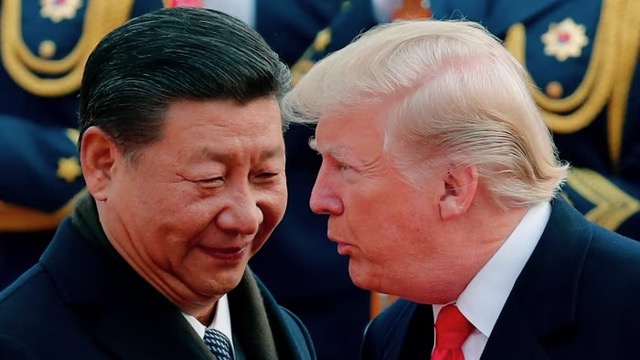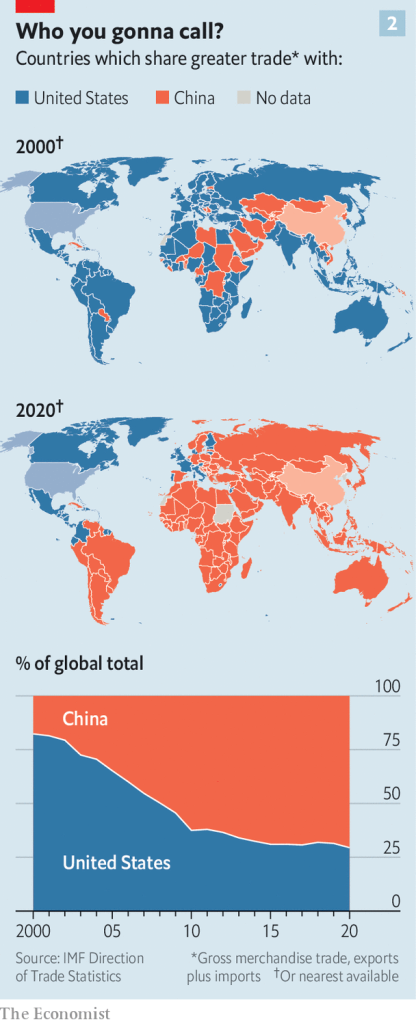
A Conversation with Dr. Xi
As many of you know, I usually write a newsletter only once a month. This is an exception. My last one, distributed on January 20 and titled “AI, Musk, and Oligarchy,” was an imagined conversation with Thomas Paine. It generated a slurry of positive responses. With that as a model, I wanted to consider the impact of President Trump’s first days in the White House as might be seen from China’s perspective.
My latest book, Confessions of an Economic Hit Man, 3rd Edition: China’s EHM Strategy, is highly critical of many aspects of China’s policies and actions around the globe. Although the first two books in the economic hit man trilogy (which do not focus on China) were published by a major publishing house there, my US publishers and I were convinced that this third one would not be – and that the English version would probably be banned in China.
Yet, it was just published in China, almost entirely unchanged. The fact that we were wrong suggests that we may need to reconsider our ideas about Chinese censorship. In any case, while writing this third edition, during the pandemic, I conducted a lot of research about China and interviewed many people in China and other countries, mostly over the internet. Those experiences, plus lecturing at an MBA program in China, gave me insights into the way people in China and around the world view the changing dynamics of global politics.
The following riffs off my conversation with Thomas Paine — this time in the form of a Zoom conversation with a prominent Chinese academic. I’ll call him Dr. Xi—although I feel obliged to point out that he is not a relative of China’s current president who happens to share that name.
It’s mid-morning when I open my laptop and click the link to join my meeting room with Dr. Xi. We exchange greetings, eager to move on to the true focus of our conversation.
JP: Dr. Xi, how do you feel about the first days of the Trump Administration?
Dr. Xi: I love it! China’s leaders are ecstatic.
JP: Why’s that?
Dr. Xi: We’ve always felt that US hegemony has to end, and there needs to be a new world order. Trump’s actions feed right into that.
JP: I don’t understand. Aren’t you concerned about the tariffs he’s promised to impose on Chinese goods?
Dr. Xi: Are you kidding? Those tariffs will increase prices on cars, computers, cell phones, refrigerators, and hundreds of other things in the US. They will result in inflation and a weakened US economy. And US sales all over the world will be hurt because your goods and services will cost more, while ours will stay the same, except in the US. Twenty five years ago, the US was the number one trading partner with about 80% of the world. Today we have replaced you. China can keep increasing its global exports regardless of US tariffs. This map tells it all—blue are places where the US is number one; red are China-dominated countries (he shares his screen, gesturing at the map):

JP: Wow. That is an impressive comparison. Your economic hit men have been very efficient.
Dr. Xi smiles.
Dr. XI: That’s true, but perhaps even more important is that US administrations, beginning with the younger Bush, have opened the door for us. All China had to do was step through.
JP: How so?
Dr. Xi: After the tragedy of 9/11, you focused your resources on wars in Afghanistan, Iraq, and a few other places. You pretty much ignored Africa, Latin America, and much of the rest of the world. We didn’t waste our energy and money on fighting wars we couldn’t win. We focused on expanding trade everywhere – including the US’s traditional allies, like parts of Europe and, yes, even in the places where you fought those wars. John, I know you follow soccer. If this were a soccer game, the US team just kept handing the ball over to China’s strikers and pulling its goalie out of the goal.
JP: That’s a pretty cynical accusation.
Dr. Xi: It’s not an accusation, just the facts. All you have to do is look at the map to see the truth in what I say.
JP: But now along comes Trump and his promises to make America great.
Dr. Xi (laughing): That’s what he says, but his actions tell a different story. Slapping tariffs on allies like Canada and Mexico, cutting back on foreign aid, dropping out of the World Health Organization, threatening to invade Panama and buy Greenland, calling immigrants criminals – those sorts of things alienate people everywhere and generate fear of the US. When that happens, where do other countries turn?
JP: China?
Dr. Xi: Of course. We have the only economy large enough to offset the US’s influence. We can offer technical expertise, financial aid, goods and services, investment capital, and even protection, if that is needed. And here’s something else: I know that you in the United States like to talk about our so-called abuses of the Uyghurs and other Muslims, but much of the rest of the world sees the US as more anti-Muslin than us, given your invasions of Afghanistan and Iraq and your support of Israel against the Palestinians.
And one thing more: American economic hit men like you used to argue that democracy is always superior to authoritarian government. That you have a democratically-elected president who follows the rule of law, while we have a dictator who is above the law. Well… who won that argument?
JP (feeling the need to change the nature of our conversation): What do you see as the biggest mistake the US made before Trump— that as you said, opened the door to China in so many countries?
Dr. Xi: You answer that question in your own books. You point out that the Vietnam War taught the United States that military power can’t win hearts and minds, or even defeat more poorly equipped armies. After that, in the 70s when you were an economic hit man, the policy was to spread US hegemony through the economic and debt strategies your books describe. However, the US military-industrial-complex was not satisfied with this and continually pressured presidents and other politicians to ramp up the defense industry. This came to a head after 9/11 when the decision was made to combine the economic hit man approach with increased military operations. You invaded Afghanistan and Iraq. As I’ve already pointed out, this was a huge mistake. It not only drained your resources—it undermined your credibility around the world. It was the beginning of the end to the American era of global domination. It threw the door wide open to China.
JP: All of what you say may be true, or somewhat true, but, come on Dr. Xi, don’t you agree that Trump’s policies will strengthen the US economy and our military?
Dr. Xi: Please keep thinking that way, my friend. And writing those words. They play into our hands. You realize, don’t you, that this new US administration has already alienated itself from many countries that were once your loyal supporters? They don’t trust you to honor past agreements and they have no idea what actions you will take next. The US is seen as a bully, and no one likes a bully. People give in to bullies until they understand that they have to stand up to them – or turn to someone who will.
JP: China.
Dr. Xi (screen sharing the map once again): There’s an old Chinese proverb: If you want to build an empire, make friends, not enemies.








